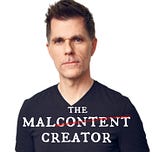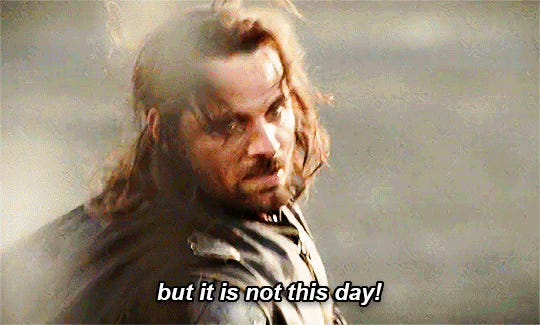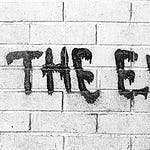This one is by request, and it comes with a horse dose of disclaimers. I signed with my agent back in 2013, the year “Wrecking Ball” and Frozen dominated pop culture. Obama was president. The doge meme was a thing. Taylor and Harry book up. It was a different world.
The question I get asked most often is “Where do you get your inspiration?” To which the honest answer is: from my insatiable need for validation from strangers coupled with my profound fear of being forgotten. (This answer qualifies as bonus content.)
But that’s not the subject of this week’s post. This week’s post is about the question I get asked second most often: “How do I get an agent?”

What Is an Agent?
Maybe first we should talk about the role of an agent in a writer’s life. Your agent’s primary objective is to sell your book to a publisher. You have talent and a manuscript, and they have relationships and knowledge of the publishing landscape. Their job is to connect you with people who want to publish your book. Agents need to know the market — what kind of books are selling, and to whom — and, they need to have relationships with editors. Once your agent is in love with your book, they’ll make a plan of attack: who they’ll send it to, and when, and how they’ll present it.
Sometimes, selling your books is the whole relationship, and that’s perfectly normal. In fact, many authors never meet their agents in person — they do emails and phone calls and the occasional Zoom. It’s one of the quirks of publishing; we can do it all by remote.
But sometimes, an agent can be more. They can be an editor. A counselor. A confidante. Every agent/author relationship is different. Ideally, you’ll find an agent whose style matches your own. Then again, you may find an agent who is only interested in loving and selling your book. That’s fine. Regardless of style, the primary domain of the author-agent relationship is business.
How Do I Know I’m Ready For an Agent?
Well, to begin with, you’ve finished a manuscript. You’ve gotten feedback from friends, or even better, a writer’s group. You’ve incorporated that feedback into extensive revisions until the book is as good as you can possibly make it. This process serves a few functions: 1) It makes you a better writer 2) It forces you to enter a community of writers.
It’s not “who you know.” It’s “who you get to know.”
—Someone I got to know
You may not know any famous writers. You may not even know any published writers. But chances are you know a writer who’s ahead of you career-wise, or maybe is just a better writer. You want to spend time with those folks. If you look around and find that you are the best, most-accomplished writer in the room, g et out!
Finding a good writer’s group may not be easy. You might to have to dig around. Maybe on Facebook. Maybe at your local community college. Or library. Or bookstore. You have to go find it. The process may be uncomfortable; so is publishing. Your fantasy of the introverted writer’s life dies here, my friend. R.I.P.
Okay. You’ve finished a manuscript. You’ve joined a writer’s group and solicited good feedback. You’ve pounded your keyboard within an inch of its warranty with your brilliant revisions. Now what?
You Must Learn How To Talk About Your Book
I know, I know. You wrote the damn thing — now you’re supposed to talk about it? Uggggh. (Wait till you get asked to write your own flap copy. I always thought they had people for that. Another dream shattered.) This process could be harder than you think. Most authors dread it. When you’re so close to the story, it’s hard to condense it into a few broad strokes. I recommend reading the flap copy of books you love, or looking at online descriptions. See which bits they include and which bits they omit.

The way I see it, you need three answers to the question “What’s your book about?”
The one-sentence pitch.
The two-minute pitch.
The full synopsis.
Breaking these down is a post unto itself. Maybe I’ll write it one day soon.
Okay, But How Do I Find An Agent?
Let’s step away from the internet for a minute. ‘Tis a big, scary place with trap doors and teeth. Let’s start at a much friendlier place: the bookstore.
Find Yourshelf
Find the shelf where your book will sit.
I’m serious. Go to the section where your book will be shelved, scan to the place where your last name will fit, and make a blank space on that shelf. Stand back and snap a pic with your phone. That spot is your novel’s future home. That’s where readers will find your book. Visualize the spine bearing the title and your last name. Let the hunger and hope and fear fill you. That spot is yours. You’re not going to let some newbie hack beat you to it. You’re out for blood. BLOOD I SAY!
Now you need to locate three books that are like yours.
YES, THERE ARE BOOKS LIKE YOURS. Your book is original because it was written by you, and you are a unicorn. But your book WILL have things in common with other books: the tone, maybe, or the subject matter. Maybe the plot has pleasing echoes of another book’s. Maybe your writing style reminds readers of another author’s.

THIS IS AN IMPORTANT FACT TO EMBRACE.
One of the most effective ways books get pitched to agents, editors, book buyers, and readers is by comparing them to published works. “For fans of Chuck Palahniuk,” “Jaws meets Care Bears,” and “Dirty Dancing in Space,” are all quick, compelling comparisons that give coordinates to your work.
For your comparisons (“comps” in the lingo), you’ll want to pick books that sold well and were published in the last five years. Debuts are especially good, if you can find them. Don’t get too grand. If you claim your book is like the Harry Potter meets Gone With the Wind, no one is going to take you seriously. You want modest but exciting comparisons. Let others brand you a genius.
And I cannot stress this enough — if you can’t come up with at least two comp titles, one of two things is happening. 1) You haven’t figured out what your book is or 2) You haven’t read the market thoroughly enough.
If you want to be published, you must read widely in the genre you write: classics, current bestsellers, recent debuts. This will give you an understanding of the market and ease your entry into the writing community. When you attend book launches or writing conferences, you’re likely to meet some of the authors who write in your space — and there’s nothing a writer likes more than being told by another writer that they’ve read and loved their books.
The Searching
Okay. You’ve found those three books. Pick one and flip to the back, to the section titled ACKNOWLEDGMENTS. This is your new favorite part of any book. Almost without fail, the writer will thank their agent and their editor right at the top. Write these down, noting the title, author, and publisher/imprint. You now have a list of three relevant targets for your book. NOW you can get on the internet. Look up those agents. Follow them on Instagram and Threads. (Not on X. Let’s get writers away from that garbage disposal.) Search their agency websites; you’ll find a page that indicates whether that agent is open to submissions and, if they are, how to submit. That’s a great start. You’ll learn so much from this exercise that the next steps will likely unfold before you.
Now Comes The Pitch
You’ve written the book, you’ve identified possible agents. Now, to get their attention.
The best way to get an agent’s attention is by personal recommendation. Before you complain “but I don’t know anyone,” take a deep breath and read these fine tips: List everyone you know who is vaguely connected to the publishing world (writers, bloggers, bookstagrammers, superfans.) Make lists of authors you love and follow them online. Find their agents and editors and follow them. (FOLLOW, not stalk.) You may discover you have mutual friends.
Read books written, edited, or represented by these people and tag them in positive, supportive posts. Congratulations! You are now authentically participating in the writing community! Now, when you talk to agents and writers, you will be genuinely connected to them and their work. I cannot stress how important this is. Your chances of being published are insanely slim if you just sit in your room reading Gatsby and Interview with a Vampire and don’t get out there and connect. Reach out! Make friends! Don’t bite people!
The most common way to get an agent’s attention is by querying. You find their website, make sure they’re open to queries, follow the instructions they lay out, and then — gasp — comes the dreaded QUERY LETTER. That’s a whole course unto itself; I wish you good googling. Maybe I’ll take that on in a later post. Long story short: you introduce yourself, say why you’re querying that agent, then give your one-sentence pitch. That done, you do a short synopsis that the tells beginning, middle, and end of your book. A quick sentence or two about who you are, and then you copy and paste the first ten pages of your book into the email and send it.
Another way to meet agents — and the way I chose — is to attend writer’s conferences that include pitch sessions. There’s a whole art to a live pitch, and maybe I’ll cover that in yet another post. (Another problem for your friend and mine, Future Jeff. “FJ” for short.) The big picture is as follows: You find a conference within driving distance. You pay a couple hundred bucks to register. You attend sessions like “DIY Book PR,” and “How to Write Good Dialogue,” and “Anatomy of a Villain,” etc. You learn tons. You meet other writers and share meals with them. Then, you attend a pitch session where you get to meet real live agents in person and tell them about your book. There’s lots of homework before this part, but again, that’s for a later post.
That Was A Lot
Wow. I’m exhausted. Are you exhausted? Hopefully, you have a better picture of how the agent-finding process works. I’ve left out a thousand details and and a million different ways other authors have found their agents. Your mileage will vary. There is no rush; your dream won’t die unless you quit.
Now go finish your damn manuscript.













Share this post